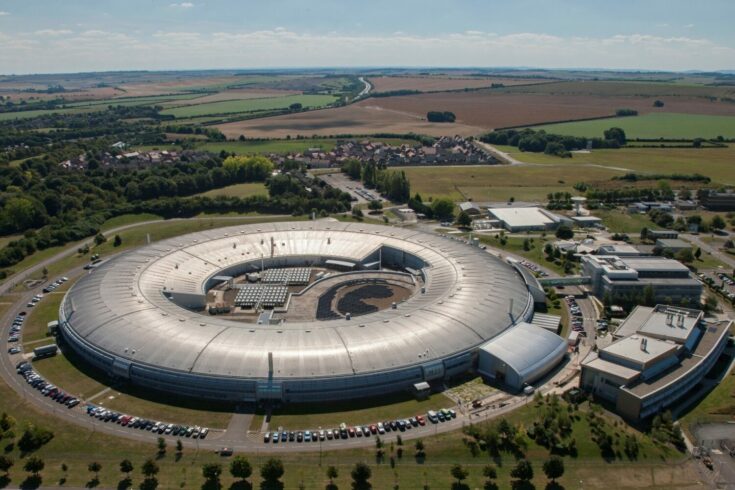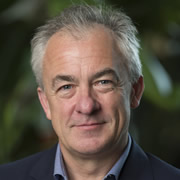Infrastructure sits at the heart of the UK’s research and innovation endeavour. Access to world-class infrastructure enables the UK’s talented researchers and innovators to be at the forefront of fields as diverse as the life sciences, particle physics and the creative industries.
From synchrotron light sources and satellites to collections and large-scale computing facilities, it is the underpinning architecture on which our success sits.
Infrastructure roadmap
When we launched the infrastructure roadmap programme (PDF, 5MB) five years ago, we set ourselves the task of:
- mapping out the existing research infrastructure in the UK
- developing a long-term strategic roadmap for future investment opportunities to support the UK’s position as a global leader in research and innovation
This was one of the first projects initiated under the then-newly-formed UK Research and Innovation (UKRI).
This five-year anniversary provides a timely opportunity to look back on what the programme has achieved and how it has changed the way we make long-term infrastructure investments.
Comprehensive picture
Prior to the launch of the roadmap programme, the UK had not undertaken a comprehensive assessment of its research and innovation ecosystem.
This programme initially focused on providing a UK-wide picture of the existing landscape and, for the first time, considered both research and innovation infrastructures.
This work helped us to identify future capabilities and opportunities where investment in infrastructure was needed to ensure our talented researchers and innovators would have access to world-class infrastructure in the long-term.
As outlined in the independent report recently commissioned by UKRI, the programme has succeeded in its goals of further enhancing the UK’s position as a global research and innovation leader.
Similarly, the strategic approach – looking across the entire sector – has provided a long-term investment plan that supports disciplines ranging from the arts and humanities to the physical sciences.
The Infrastructure Fund: from plans to investment
Building on the recommendations of the roadmap programme, UKRI introduced a new infrastructure prioritisation process through the establishment of the pan-UKRI Infrastructure Fund.
To advise and help us to prioritise investment decisions, UKRI set up a new expert Infrastructure Advisory Committee (IAC) made up of senior leaders from:
- higher education
- innovation and research organisations
- industry
- policy
The Infrastructure Fund takes a portfolio approach to investment decisions; moving away from one-off independent decisions to a portfolio of high-priority projects that fit within overall budgetary constraints.
This represented a step-change in the way the UK invests in major research and innovation infrastructures. All projects within the portfolio, which forms the investment roadmap, are required to meet core criteria, such as:
- contributing to a step change in capability
- strategic importance
- impact potential
- feasibility
- accessibility to the wider community
The Infrastructure Fund was also the first fund of its kind in UKRI to include environmental sustainability as a mandatory criterion in its decision-making. This will play an increasingly critical role in achieving both the government and UKRI’s net zero ambitions.
Innovative approach
The overall balance of the portfolio of investment options also takes account of factors such as strong desire for spread across disciplines, the research to innovation balance, and balance between national investment and international collaboration. This innovative approach has helped us to prioritise an initial investment portfolio with a lifetime cost estimated to be £1.6 billion.
In June 2022, we commenced the investment in this portfolio with £481 million committed in the current three-year spending review period (2022 to 2025).
The initial portfolio included 23 large-scale projects, covering diverse research areas ranging from the social sciences, the arts and humanities, biological sciences, and physical sciences to include:
- the Early Life Cohort (£28 million), a novel data infrastructure, which will study the generation of children born in a post-COVID-19 era. It will provide answers to questions around the impact of inequalities, environment and social media on children’s experiences and outcomes
- Convergent Screen Technologies And performance in Realtime (CoSTAR) (£75.6 million including £69.71 million from the Infrastructure Fund). CoSTAR is a new creative facility for the UK’s renowned screen, gaming and performance sectors, which will support these fast-growing industries to develop new products and experiences
- a £317 million investment in the John Innes Centre and the Sainsbury Laboratory in Norwich. The investment will transform existing capabilities at these internationally recognised centres of excellence in plant and microbial science, with a goal for the infrastructure to be net zero. Through integration of new and shared interdisciplinary research facilities, the infrastructure will address genetic crop improvement strategies, reducing greenhouse gas emissions through soil health, and understanding plant-microbe interactions to develop clinical treatments to improve human health
- a £66.7 million investment in the Square Kilometre Array Observatory (SKAO), headquartered at Jodrell Bank in Cheshire, to cement the UK’s role as host and contribute to the construction phase of the telescopes
A new way of working
In addition to directly funding major projects, the Infrastructure Fund also supports the funding of pilot activities and design or scoping studies to refine and de-risk future major infrastructure investments.
For example, a scoping project enabled the development of a technical design for a transformative upgrade of the Diamond Light Source, the UK’s national synchrotron.
Diamond is one of the UK’s largest science facilities, which acts like a giant microscope to image matter at the atomic and molecular level.
This design work paved the way for the full investment of £296.6 million in the Diamond-II upgrade project.
The design of the upgrade will deliver a 10-to-100-fold improvement in the brightness of the light source.
Innovative partnerships
Research and innovation infrastructures play a unique role in bringing together cross-disciplinary expertise throughout UKRI to foster knowledge sharing, develop innovative partnerships and address complex problems.
Through the UKRI Infrastructure Fund, we have seen increasing interest in investments in infrastructure that cross the boundaries of single research councils.
For example, the total body positron-electron tomography (PET) platform will be jointly managed by the Medical Research Council (MRC) and Innovate UK. The two new state-of-the-art facilities and associated radiochemistry centres will deliver the first head-to-toe PET infrastructure in Europe.
The new PET technology will be 40 times more sensitive with a faster scan time, enabling three times as many scans per day and significantly decreasing radiation exposure to patients.
Digital research infrastructure
Digital research infrastructure, such as computing and data storage facilities, software and code libraries and the networks that enable collaboration, are a key element of the UK’s research infrastructure.
With the vital importance of this in mind, the roadmap programme also resulted in the formation of a new £129 million Digital Research Infrastructure (DRI) programme. The programme runs in parallel to the Infrastructure Fund, and an accompanying cross-UKRI DRI Committee.
The programme focuses on the whole digital ecosystem by incorporating skills, software and technology needs, alongside data and compute infrastructure.
The work on DRI across UKRI aims to take a strategic approach to delivering a coherent portfolio of digital infrastructure and the skills and tools to exploit it.
To this end, we have developed a high-level strategy, capturing our long-term ambitions.
The initial investment of £129 million this spending review will pave the way to our future ambitions – it is just the starting point.
Virtual infrastructure
While the full DRI portfolio is in the process of coming together, the BioFAIR project funded through both the DRI and Infrastructure Fund provides a vivid example of the possibilities offered by this type of infrastructure.
Led jointly by the Biotechnology and Biological Sciences Research Council and MRC, BioFAIR is a virtual infrastructure for biological and biomedical sciences that enhances the sharing, management, and reuse of life sciences data.
By assembling, hosting, and operating a coherent set of registries, repositories, data management and analysis services for UK users it will accelerate discovery and enable a real step change for many fields of life sciences.
Following a similar approach to the formation of the IAC, we are in the process of establishing the new Advisory Group for Digital. The group will act as an independent expert body which will be responsible for providing advice to the UKRI Executive Committee on the portfolios of specific investments developed by the DRI committee.
Looking ahead
We have delivered on our initial goal of establishing a long-term and strategic approach to funding large-scale infrastructure within UKRI.
There are now established processes and we are planning for future waves of investment.
There will be new opportunities as technology advances, and we rely on the engagement of our research and innovation communities with UKRI’s councils to communicate future infrastructure needs.
This will ensure we build on the success of the infrastructure roadmap that has allowed us to put in place the long-term funding and processes that are required for world-class infrastructure.




